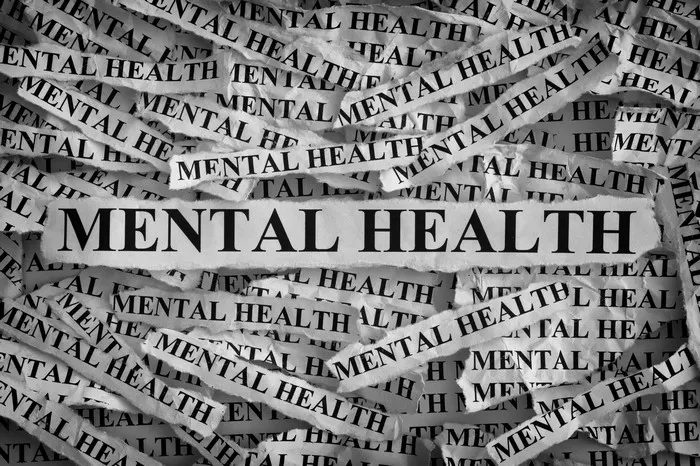The relationship between mental illness and violence is a complex and often misunderstood topic. While the vast majority of individuals with mental health disorders are not violent, there is a small subset who may experience homicidal ideation—a preoccupation with thoughts of killing others. In this article, we’ll explore the intersection of mental illness and violence, focusing on the specific disorders that are associated with homicidal ideation and the factors that contribute to these thoughts.
Debunking Myths and Misconceptions
The portrayal of mental illness in popular culture and media often perpetuates stereotypes and misconceptions, leading to stigmatization and discrimination against those living with these conditions. One prevalent myth is the belief that all individuals with mental health disorders are inherently violent or dangerous—a misconception that is not supported by scientific evidence.
Research consistently shows that the vast majority of people with mental illness are not violent and are, in fact, more likely to be victims of violence than perpetrators. However, it is essential to acknowledge that certain mental health conditions can increase the risk of violent behavior, including homicidal ideation. By understanding the factors that contribute to these thoughts, we can better support individuals in need and work to prevent violence in our communities.
The Link Between Mental Illness and Homicidal Ideation
Homicidal ideation refers to persistent thoughts or fantasies about killing others. While not everyone who experiences these thoughts will act on them, they can be indicative of underlying mental health issues that require attention and intervention. Several mental health disorders are associated with an increased risk of homicidal ideation, including:
Psychotic Disorders: Psychotic disorders, such as schizophrenia and schizoaffective disorder, are characterized by a loss of contact with reality, including hallucinations and delusions. In some cases, individuals with psychotic disorders may experience persecutory delusions or command hallucinations instructing them to harm others, leading to homicidal ideation.
Severe Mood Disorders: Severe mood disorders, such as major depressive disorder and bipolar disorder, can also be associated with homicidal ideation, particularly during periods of extreme mood swings or psychotic features. Individuals experiencing severe depression or mania may have distorted thoughts and impulses that include thoughts of violence towards others.
Personality Disorders: Certain personality disorders, such as borderline personality disorder and antisocial personality disorder, are characterized by patterns of maladaptive behavior, impulsivity, and difficulty regulating emotions. Individuals with these disorders may be more prone to angry outbursts or acts of violence, including homicidal ideation in some cases.
Substance Use Disorders: Substance abuse and addiction can impair judgment, increase impulsivity, and exacerbate underlying mental health issues, including homicidal ideation. Intoxication with drugs or alcohol can lower inhibitions and increase the likelihood of engaging in violent behavior.
While these mental health disorders are associated with an increased risk of homicidal ideation, it’s important to emphasize that the majority of individuals living with these conditions will never act on their violent thoughts. Factors such as access to treatment, social support, and protective factors can mitigate the risk of violence and promote positive outcomes for individuals with mental illness.
Understanding the Factors Contributing to Homicidal Ideation
Homicidal ideation is a complex phenomenon influenced by a variety of biological, psychological, and social factors. Understanding these underlying contributors is essential for developing effective prevention and intervention strategies. Some of the factors that may contribute to homicidal ideation in individuals with mental illness include:
Biological Factors: Certain biological factors, such as genetic predisposition and neurochemical imbalances in the brain, may increase the risk of violent behavior in individuals with mental health disorders. Research suggests that abnormalities in brain structure and function may contribute to impaired impulse control and emotional regulation, predisposing individuals to violent thoughts and behaviors.
Psychological Factors: Psychological factors, such as past trauma, childhood adversity, and unresolved anger or resentment, can also play a significant role in the development of homicidal ideation. Individuals who have experienced traumatic events or who struggle with unresolved emotional issues may be more likely to harbor violent thoughts towards others as a maladaptive coping mechanism.
Social Factors: Social factors, including exposure to violence, social isolation, and lack of access to mental health resources, can contribute to the emergence of homicidal ideation. Individuals who lack adequate social support networks or who live in environments characterized by poverty, crime, and instability may be at increased risk of experiencing violent thoughts and behaviors.
Environmental Triggers: Certain environmental triggers, such as stressful life events, relationship conflicts, or financial difficulties, can exacerbate underlying mental health issues and increase the risk of homicidal ideation. Individuals who are struggling to cope with significant stressors may be more susceptible to experiencing intrusive thoughts of violence towards others.
By addressing these underlying factors and implementing targeted interventions, it is possible to reduce the risk of homicidal ideation and promote positive mental health outcomes for individuals at risk.
Prevention and Intervention Strategies
Preventing violence associated with mental illness requires a multifaceted approach that addresses both individual and systemic factors. Some strategies for preventing homicidal ideation and reducing the risk of violence among individuals with mental health disorders include:
Early Identification and Intervention: Early identification of mental health issues and prompt access to appropriate treatment and support services are critical for preventing the escalation of violent thoughts and behaviors. Screening for mental health disorders in clinical settings and providing timely interventions can help address underlying issues before they escalate.
Access to Mental Health Services: Ensuring access to comprehensive mental health services, including counseling, medication management, and crisis intervention, is essential for individuals experiencing homicidal ideation. Improving access to mental health resources in underserved communities and reducing barriers to treatment can help individuals receive the care they need to manage their symptoms and reduce the risk of violence.
Supportive Housing and Community Services: Providing supportive housing, vocational training, and community-based support services can help individuals with mental illness reintegrate into society and reduce social isolation. By addressing social determinants of health and promoting community integration, we can support individuals in building meaningful connections and reducing the risk of violent behavior.
Education and Awareness: Educating the public about the realities of mental illness and challenging stereotypes and stigma surrounding violence can help reduce fear and discrimination towards individuals with mental health disorders. By promoting empathy, understanding, and compassion, we can create more inclusive communities that support the well-being of all individuals.
Crisis Intervention and De-escalation Training: Training law enforcement officers, healthcare providers, and other frontline professionals in crisis intervention and de-escalation techniques can help prevent violent confrontations and promote peaceful resolutions in situations involving individuals experiencing mental health crises. By providing alternative pathways to support and treatment, we can reduce the likelihood of violence and promote positive outcomes for individuals in crisis.
Conclusion
The relationship between mental illness and violence is complex and multifaceted, influenced by a variety of biological, psychological, and social factors. While the vast majority of individuals with mental health disorders are not violent, a small subset may experience homicidal ideation—a preoccupation with thoughts of killing others. Understanding the factors that contribute to these thoughts is essential for developing effective prevention and intervention strategies that promote positive mental health outcomes for individuals at risk.
By addressing underlying mental health issues, providing access to comprehensive treatment and support services, and promoting social inclusion and community integration, we can reduce the risk of violence associated with mental illness and create safer, more supportive environments for all individuals. Together, we can work towards a future where everyone has the opportunity to thrive and live fulfilling lives, free from the burden of violence and stigma.
[inline_related_posts title=”You Might Be Interested In” title_align=”left” style=”list” number=”6″ align=”none” ids=”6970,6966,7022″ by=”categories” orderby=”rand” order=”DESC” hide_thumb=”no” thumb_right=”no” views=”no” date=”yes” grid_columns=”2″ post_type=”” tax=””]



































